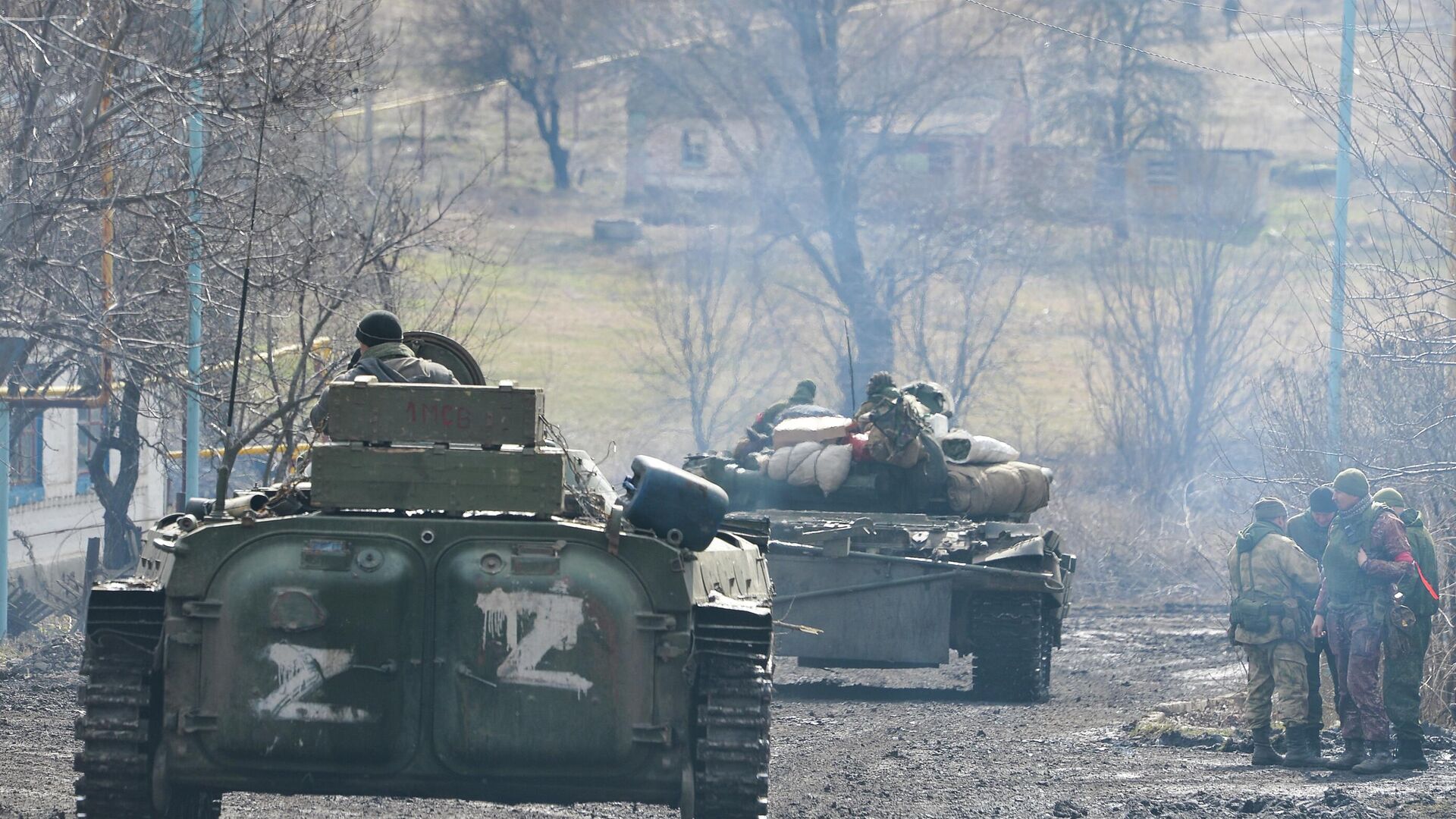US Plans to Take Apart Russia’s ‘War Machine,’ Disrupt Supply Chain, Treasury Says
19:00 GMT 18.04.2022 (Updated: 19:04 GMT 18.04.2022)

© Sputnik / Viktor Antonyk
/ Subscribe
WASHINGTON (Sputnik) – The United States wants to take apart Russia’s "war machine" by disrupting its defence industry and supply chain, Deputy Treasury Secretary Wally Adeyemo said on Monday.
"The next phase of our work will be to take apart Russia’s ‘war machine’ piece by piece by disrupting their military industrial complex and its supply chain," Adeyemo said during a virtual discussion organised by the Peterson Institute for International Economics.
He also said that the United States expects the Russian economy to shrink by 10%, and its imports to decrease by 37%.
"Russia’s economy is expected to contract by 10 percent," Adeyemo said. "Russia is seeing inflation spike with the World Bank estimating inflation to reach 22 percent over the course of this year. Analysts forecast that imports could fall as much as 37 percent, and the domestic demand could decline over 11 percent."
"Russia’s economy is expected to contract by 10 percent," Adeyemo said. "Russia is seeing inflation spike with the World Bank estimating inflation to reach 22 percent over the course of this year. Analysts forecast that imports could fall as much as 37 percent, and the domestic demand could decline over 11 percent."
However, the US Deputy Treasury Secretary said that sanctions can be reversed if Russia changes its behavior.
"We always want to make sure that any sanctions that we put in place can at some point - if behavior changes - be reversed in order to make sure that threat actor knows that once sanctions are put in place, the goal is behavioral change ultimately," Adeyemo explained.
"We always want to make sure that any sanctions that we put in place can at some point - if behavior changes - be reversed in order to make sure that threat actor knows that once sanctions are put in place, the goal is behavioral change ultimately," Adeyemo explained.
This comes as Russia's special military operation aimed to "demilitarise and denazify Ukraine" has entered its 54th day. Russian President Vladimir Putin announced the beginning of the operation in late February following calls from Ukraine's breakaway republics of Donetsk and Lugansk to defend them amid intensifying shelling by Kiev's forces. According to Putin, one of key goals of the operation is to stop the genocide of the predominantly Russian-speaking population in Donbass by the Kiev nationalistic regime. The Russian Defence Ministry has repeatedly stressed that the army is targeting Ukraine's military infrastructure only and is doing everything possible to avoid casualties among civilians.
The West condemned the Russian operation in Ukraine and slapped unprecedented sanctions against Russia aimed at tightening grip on the country's economy, including banking sector and export flows.


